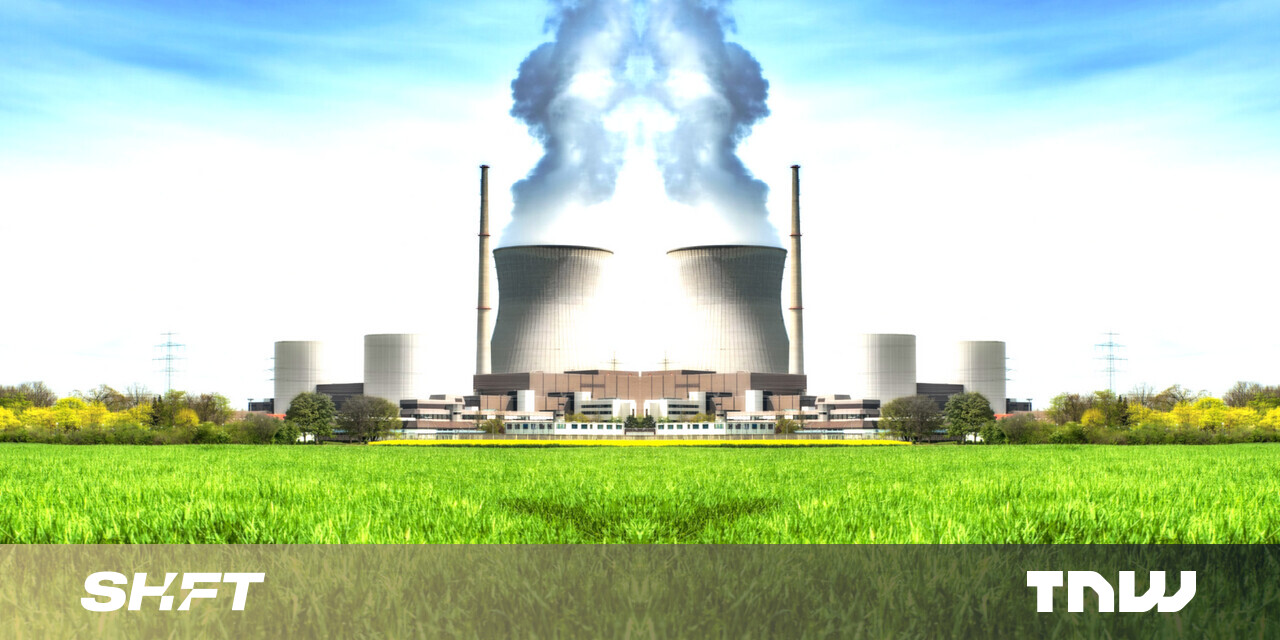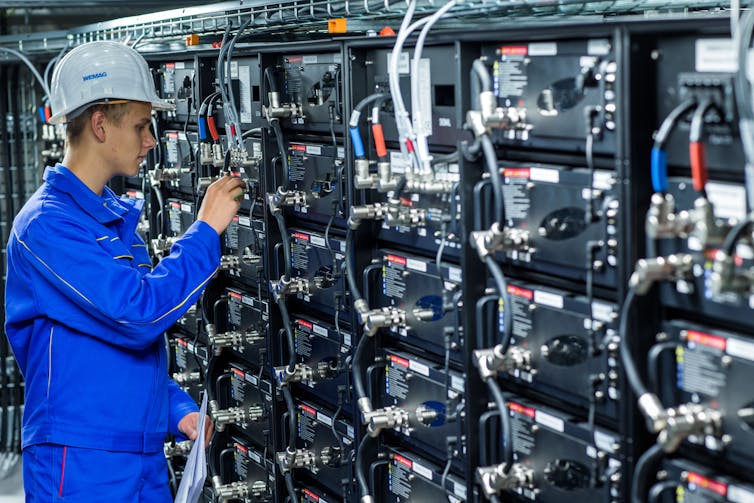#Can nuclear power solve the energy crisis? It depends who you ask

Table of Contents
“Can nuclear power solve the energy crisis? It depends who you ask”
Johnson has told industry figures that he wants nuclear power to meet 25% of the UK’s energy demand by 2050, up from 16% today. That would mean roughly 30 gigawatts (GW) from a source that is currently set to shrink to 3.6GW by 2030, as all but one of the UK’s eight plants are due to be decommissioned by the end of the decade.
Sunak is reported to be unhappy with the £13 billion price tag attached to eight new nuclear reactors. But Open University’s professor of energy William Nuttall argues new reactors are worth the upfront cost for the part they can play on an all-renewable grid:
Large nuclear power stations have huge turbine generators spinning at high speed. These hold their speed in the face of small national fluctuations [in energy supply], providing stability to the grid. A constant base supply of nuclear power could continue to meet demand when renewable generation falters because the wind isn’t blowing and the sun isn’t shining.
Nuclear power generation can be dialed up to cover gaps in supply from renewable sources, a job that coal and gas generators are often called upon to do now. Another low-carbon way to do this is to build batteries big enough to store the electricity generated by green sources.
More bang for your buck with batteries?
While the falling costs of solar and wind energy continue to exceed expectations, nuclear construction projects remain expensive behemoths with “a history of cost overruns … around the world” argue MV Ramana and Xiao Wei, experts in security and energy supply at the University of British Columbia in Canada.
We’re researchers who have examined the economics of electricity generation in Ontario, and we’ve demonstrated that as the costs of batteries decline, the cost of supplying electricity using a combination of renewables and battery storage would be cheaper than using nuclear power.
Bill Lee and Michael Rushton, lecturers in nuclear energy at Bangor University, are unconvinced. They argue that battery technology simply isn’t advanced enough to do what reactors are already capable of doing within the vanishing window of opportunity to avert catastrophic global warming.
Even today’s largest battery stores can only provide back-up electricity for a few hours, which is not always enough to cover extended periods of low wind or shorter daylight hours during winter. Battery technology is improving all the time, but it may not do so fast enough to meet rising electricity demand.
Rolling out lots of electric vehicles could squeeze the supply of batteries even further, potentially even increasing their cost.

They argue that balancing supply represents just a fraction of nuclear power’s potential contribution to decarbonization. The government has also nudged the industry regulator to begin the approval process for Rolls-Royce SMR’s small modular reactor design.
The company announced in 2020 that it hoped to bring 16 of these reactors — which are much smaller, cheaper to build, and typically generate one-third of the energy of a traditional nuclear power plant — online by 2025.
“Because they burn the fuel more efficiently, this new generation of reactors also produces much less nuclear waste,” say Lee and Rushton. They believe that:
Future nuclear reactors will not just be big kettles making steam to drive turbines that generate electricity. The heat produced during the nuclear reaction can be diverted to power processes that are currently difficult to decarbonise.
Take heating in buildings, for example. Heat cooler than 400°C can be extracted after the turbine, and pumped into district heating systems, replacing fossil fuels like natural gas. This is a process that is already carried out daily from municipal waste incinerators across Europe.
And that’s not all, they say.
High-temperature heat (between 400 and 900°C) could be diverted from nearer the reactor, before it reaches the turbine in a nuclear plant. It could be used to power processes that produce low-carbon hydrogen fuel, ammonia and synthetic fuels for ships and jets. This heat could also supply industries such as steel, cement, glass, and chemical manufacturing, which often otherwise use burners powered by fossil fuels.
Future threats and opportunities
Not everyone is convinced that nuclear power is a reliable tool in the effort to slow global warming and shore up energy supplies though. Paul Dorfman is an honorary senior research associate at UCL’s Energy Institute. He argues that “nuclear energy is, quite literally, “on the frontline of climate change – and not in a good way”.
“Nuclear power is often credited with offering energy security in an increasingly turbulent world, but climate change will rewrite these old certainties,” Dorfman says.
“Nuclear power plants must draw from large sources of water to cool their reactors, hence why they’re often built near the sea,” Dorfman highlights. “Two in five nuclear plants operate on the coast and at least 100 have been built just a few meters above sea level.
In a world made increasingly turbulent by climate change, that’s a problem, Dorfman argues.
“A recent US Army War College report also states that nuclear power facilities are at high risk of temporary or permanent closure due to climate threats – with 60% of US nuclear capacity at risk from future sea-level rise, severe storms, and cooling water shortages.”
Could nuclear fusion save us? It wasn’t so long ago that Boris Johnson’s Conservatives were bullish about the prospect of a reactor being able to harness the power within stars by 2040. Thomas Nicholas, a Ph.D. candidate in plasma science and fusion energy at the University of York, set the record straight in 2019:
“Unlike current nuclear power plants — which split atoms in a process called fission — nuclear fusion binds atomic nuclei together. This releases much more energy than fission and produces no high-level nuclear waste.”
Because of the embryonic status of fusion research (what many hailed as a recent breakthrough still puts the world on track for possible demonstration fusion power plants by the 2050s), Nicholas argues that:
The likely role for fusion would be as an energy source in a post-carbon society … Climate policy should prioritise deploying proven technologies immediately, without relying on speculative solutions. Stopping climate change is too important to leave to the last minute.
This article by Environment + Energy Editor, UK edition, republished from The Conversation under a Creative Commons license. Read the original article.
If you liked the article, do not forget to share it with your friends. Follow us on Google News too, click on the star and choose us from your favorites.
For forums sites go to Forum.BuradaBiliyorum.Com
If you want to read more like this article, you can visit our Technology category.




